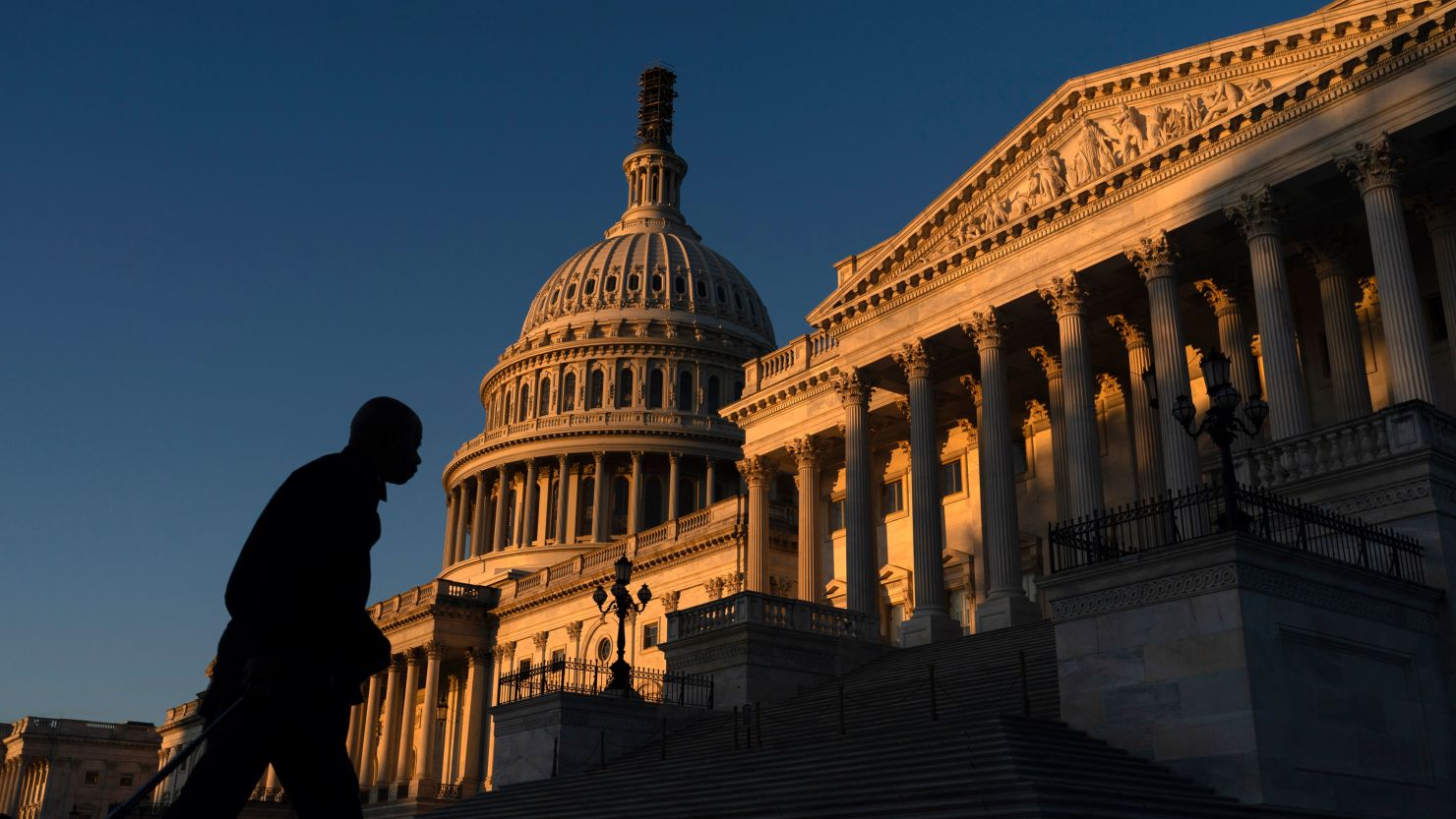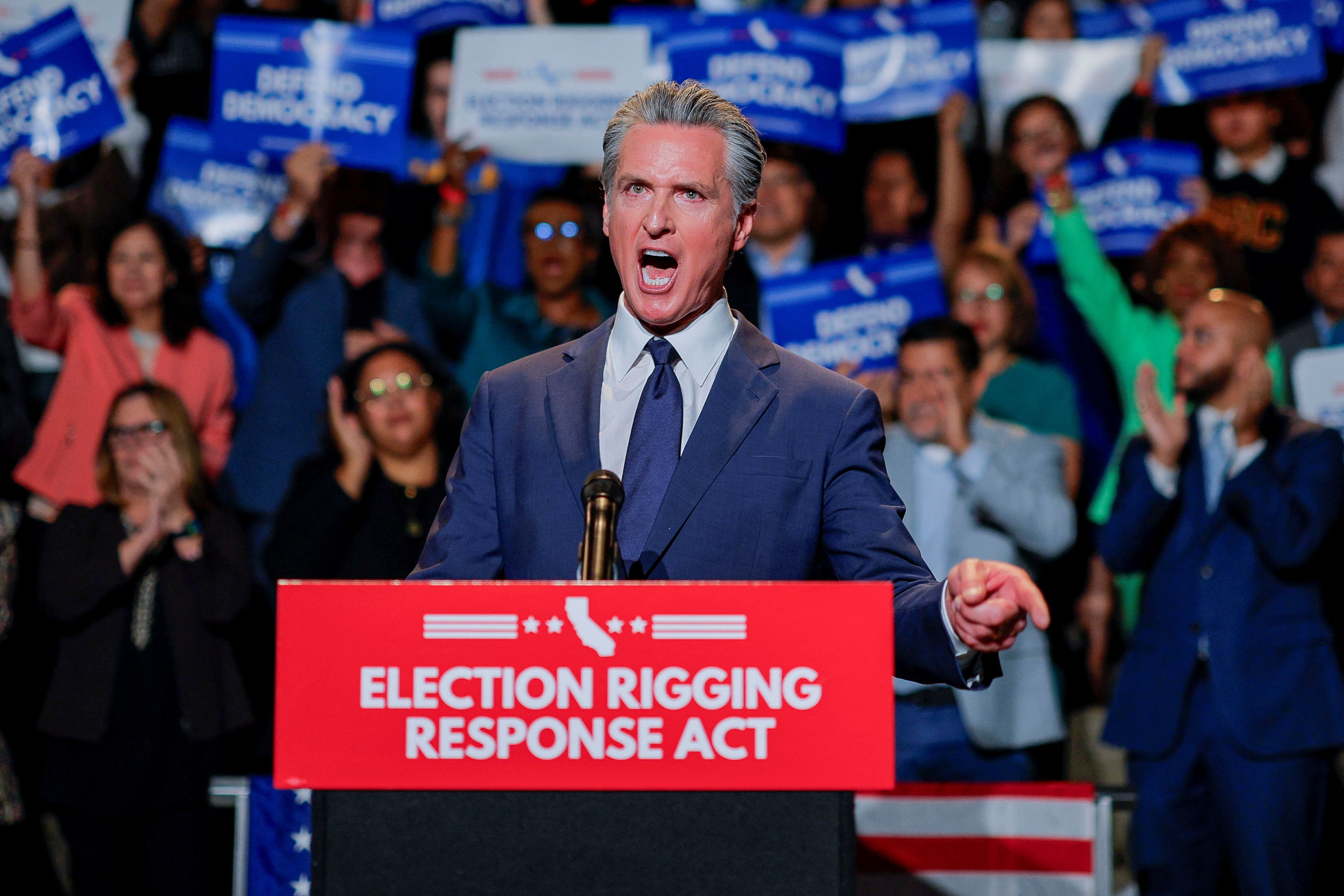The battle over redistricting in California intensified this week as the state’s highest court rejected a petition from Republican lawmakers seeking to halt Governor Gavin Newsom’s controversial push to redraw the congressional map.
While the ruling provides Democrats with an opportunity to accelerate their efforts ahead of the 2026 midterms, Republicans are vowing that the fight is far from over.
On Wednesday, the California Supreme Court issued a brief but consequential order dismissing a petition filed by four Republican legislators.
The petition had sought to block the governor and his Democratic allies from fast-tracking legislation to reshape California’s districts.
In its ruling, the court stated simply: “Petitioners have failed to meet their burden of establishing a basis for relief at this time under California Constitution article IV, section 8.”
Although the order offered little in the way of detailed explanation, the effect was clear: Democrats in Sacramento can now proceed with their legislative package, which includes provisions to set up a special statewide election in November.
That election, if approved, could pave the way for the adoption of a new map more favorable to Democrats as they prepare for the next round of federal contests.
Governor Newsom has framed his redistricting plan as both a countermeasure to GOP maneuvers in other states and a necessity for preserving Democratic representation in Congress.

In particular, he has pointed to Republican-led redistricting in Texas as evidence of what he calls “partisan gerrymandering” designed to consolidate conservative power.
By calling for a special election this November, Newsom is attempting to secure voter approval for a map that would help Democrats regain their footing after setbacks in the 2024 election cycle.
His office has promoted the initiative as a way to “restore fairness” to California’s representation, though Republicans argue that the plan is a transparent power grab masquerading as reform.
At the heart of the Republican lawsuit was a constitutional requirement in California mandating a 30-day waiting period before any newly introduced bill can be passed.
However, Democrats sought to circumvent that requirement by taking bills originally introduced earlier in the year, removing their text entirely, and substituting in the redistricting language.
This maneuver, commonly known as “gut and amend,” is technically permissible under legislative rules but has long been criticized as a loophole that undermines transparency.
Republicans argued that using “gut and amend” to advance something as significant as congressional redistricting violated the spirit of the state constitution and deprived Californians of meaningful input.
The challenge was spearheaded by four Republican legislators: Senator Tony Strickland, Senator Suzette Martinez Valladares, Assemblyman Tri Ta, and Assemblywoman Kate Sanchez.

The lawmakers submitted their petition on Tuesday, just one day before the court issued its ruling. They asked the justices to block Democrats from moving forward until at least September 18—a timeline that would have effectively derailed Newsom’s hopes of organizing a November special election.
In their filings, the legislators admitted that the case was “a matter of first impression,” meaning that no prior legal precedent directly addressed the issue.
Nonetheless, they argued that the implications were serious and that allowing Democrats’ strategy to go unchallenged would set a dangerous standard for future redistricting fights.
In a joint statement following the court’s decision, the four lawmakers expressed frustration at the ruling and criticized both Newsom and the Democratic majority in Sacramento.
“This means Governor Newsom and the Democrats’ plan to gut the voter-created Citizens Redistricting Commission, silence public input, and stick taxpayers with a $200+ million bill will proceed,” the statement read.
“We will continue to challenge this unconstitutional power grab in the courts and at the ballot box. Californians deserve fair, transparent elections, not secret backroom deals to protect politicians.”
The controversy surrounding California’s redistricting push highlights the broader national struggle over congressional boundaries.
With control of the House of Representatives often hinging on just a handful of districts, both parties see redistricting as a high-stakes battlefield.

For Democrats, California represents one of the few opportunities to claw back seats lost in recent years. By redrawing lines in their favor, they could potentially offset Republican gains in other states.
For Republicans, however, the move represents a betrayal of the reforms that California voters themselves put in place. The Citizens Redistricting Commission, established by a voter-approved initiative, was meant to take politics out of the process by handing map-drawing authority to an independent body.
By seeking to override the commission’s work, critics argue, Newsom and his allies are undermining the very principle of nonpartisan fairness they once championed.
Another element fueling GOP criticism is the projected cost of Newsom’s plan. The special election alone is expected to cost more than $200 million—a price tag that Republicans argue is unjustifiable given the state’s budget challenges.
At a time when California is grappling with issues ranging from a housing crisis to wildfire recovery, critics say pouring hundreds of millions into a political exercise sends the wrong message to taxpayers.
The clash in California is part of a broader trend of partisan redistricting battles across the country. In states like North Carolina, Wisconsin, and Texas, courtrooms have become the primary arena for determining the balance of power in Congress.
While both parties accuse the other of gerrymandering when convenient, the dispute in California is particularly symbolic. For years, Democrats held up the state’s independent redistricting commission as a model for the nation.
This reversal has given Republicans a powerful talking point: that Democrats are only committed to “fair maps” when those maps benefit them.

With the court’s ruling, Democrats are free to move forward with a legislative vote as early as Thursday. If approved, the package would set in motion preparations for a November 4 special election.
That election could give voters the chance to weigh in directly on the new map, though critics note that the rushed timeline limits opportunities for meaningful debate.
Republicans, meanwhile, are not backing down. In addition to pursuing further legal options, they are framing the fight as part of a larger battle for transparency and accountability in California politics.
GOP leaders are expected to highlight the issue heavily in upcoming campaigns, hoping to galvanize voters frustrated with one-party dominance in the state.
The California Supreme Court’s dismissal of the Republican petition marks a significant moment in the state’s ongoing redistricting fight. For Governor Newsom and Democratic lawmakers, the ruling opens a pathway to reshape congressional lines in their favor ahead of the 2026 midterms.
Republicans, however, it represents just the beginning of a larger struggle to defend the integrity of the state’s electoral process.
At its core, the debate raises fundamental questions about fairness, transparency, and the role of voters in shaping their own representation.

Whether Californians ultimately embrace Newsom’s plan or reject it at the ballot box, the battle over redistricting is certain to remain one of the defining political conflicts of the coming years.




